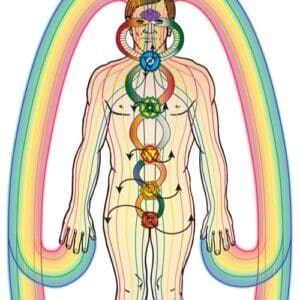Description
Community Herbalist Certificate – 700HR Certificate
Program Overview:
This Program will build a strong foundation in North American Herbal Medicine, inspiring people to enjoy herbs in their everyday health as they serve and support family, friends and community. Beginning with local herbs, both wild and cultivated, students will learn how to identify and forage in an ethical and sustainable way. Students will then learn how to transform herbs into practical, useful and safe herbal remedies for home and community. Students will develop skills to advise and provide informal consultations for common conditions and ailments. They will also learn to customize herbal remedies for each person’s unique history, energetics and lifestyle from a holistic system supporting both body and mind.
Program Structure:
- Herbology 1 – An introductory course providing the foundational knowledge of herbology, theoretically and practically. Curriculum includes basic concepts and terminology, organoleptic and botanical plant identification of thirty local herbs, ethical and sustainable harvesting and gardening practices, transformations of herbs into food and medicine, creating a herbal first-aid kit and experiencing the many facets and benefits of hands-on herbal medicine.
- Herbology 2 – Materia Medica – An in-depth dive into herbs, students will break down the properties of herbs by actions and energetics to understand how and when to use herbs. Review terminology, organoleptic and specific indications for a variety of local and common herbs used world wide. Students will learn how to build a materia medica which will grow as their knowledge in herbalism grows.
- Herbology 3 – Life Cycles – Furthering their herbal knowledge and the skills acquired in Herbology I, students will learn how to integrate herbs into their healing repertoire throughout the cycle of life. Assessing common ailments of the cycles of life: the childbearing year to becoming an elder. Students will develop practical knowledge of how to integrate herbs that nourish, heal and support infants, children, transitions, adults and elders throughout their life. Students will have the opportunity to critique labels and recipes in order to familiarize themselves with the art and science of herbal formulary.
- Herbology 4 – Body Systems Reviews the 75 herbs from Herb 1 & 2, plus introduces a few more, emphasizing their affinity for a particular system of the body, including the Immune-Lymphatic System, Digestive System, Endocannabinoid System, Endocrine System, Cardiovascular System, Respiratory System, Nervous System, Reproductive System, Musculo-skeletal System, Urinary System and Integumentary System. Students will be able to distinguish the best herbal choices in formulating blends for common conditions for each body system based on their actions, energetics and affinities.
- The Body – An integrated exploration of anatomy and physiology, aiming to provide a comprehensive understanding of the body, embracing both conventional knowledge and holistic perspectives. While students learn about the body, the course will introduce simple, observational physical assessments to identify common patterns and ailments.
- Nutrition – The Ecology of Food At the base of health and well-being, the concepts about nutritional requirements are examined in context with the person, their food and their environment. Students will explore the journey of food from the ground to the table, and understand the relevance of various diets – both traditional and modern. Just as important, is the consideration of the state of the person eating the food – their digestive capacity, habits and enjoyment. At its core, this is a course about relationships to the world in and around you.
- Ayurvedic Biocharacteristics / Tissue States Level 1 – An introduction to Ayurvedic principles, focusing on understanding different body types and tissue states.
- Western Energetics & Tissue States 2 – Expanding on the knowledge from the introduction to biocharacteristics and tissue states, this course delves deeper into tissue state pathology occurring in each body system. Students will learn how to apply their knowledge of herbs to the tissue states in formulation to create customized formulations and products.
- Fabrication – Expanding on the practical application during Herbology 1, students will learn about the transformation and fabrication of artisanal remedies & products. From blending teas, infusions, decoctions and syrups, developing cream and salves to different types of tincture (alcohol, vinegar and glycerite extractions), this hands-on course will allow you to explore practical transformations of herbs for your family or community.
- Professional Record Keeping, Ethics, and Deontology: A crucial module covering the professional aspects of herbology practice, including record-keeping, ethical considerations, and professional conduct.
Program Highlights:
- Comprehensive Curriculum: Acquiring foundational knowledge in Western Herbalism, the program covers a wide range of topics in herbology.
- Knowledgeable Educators: Learn from hands-on herbalists who integrate daily herbal practices and prioritize ongoing, lifelong learning.
- Wild and Cultivated Herbs: Learn about the practical and theoretical properties and uses of over 75 local and common herbs used world wide.
- Hands-On Learning: Interactive exploration and practical transformations to integrate herbs into daily life and develop the ability to support one’s community.
- Herbal Customization: Understand each person’s unique energetic picture and wellness to create specific and personalized blends.
- Integration of Traditional and Modern Practices: Combining folk wisdom with modern herbal science to cater to a variety of conditions and practices.
- Hobby into a business: Start expanding the ways you can turn a passion into a business or career to share your herbal knowledge.
- Small groups with individualized attention
Graduates of the Community Herbalist Certificate program will be equipped to pursue various career paths, including:
- Herbal Consultant: Supporting one’s community with herbal remedies for various common ailments and conditions.
- Herbal Product Maker: Crafting and selling herbal products like teas, tinctures, and salves.
- Sharing their Herbal Education in community settings and/or workshops.
Conclusion:
This program will provide participants with a foundation in the art and science of herbalism. Upon the completion of this program, participants will be able to share and enjoy adding herbs to daily wellness practices both for their families and communities.



